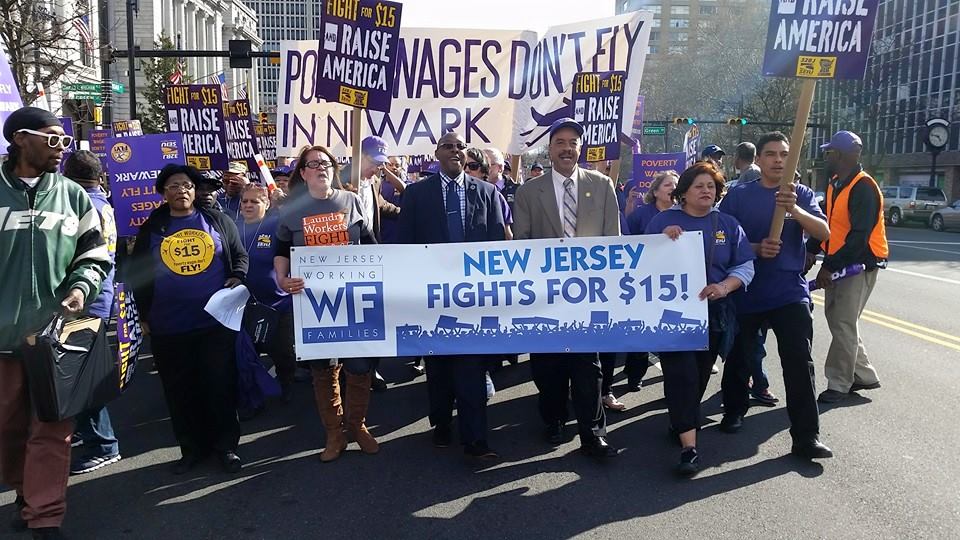
I got a slightly confusing reply from State Senator Bob Gordon to my email regarding this issue and have been checking into what his reply could mean. Here are the facts I’ve learned:
New Jersey Democrats were able to pass Bill A-15 on 23 June 2016 to raise the state’s minimum wage to $10.10 an hour in January 2017 and continue raising it in yearly $1.25 increments until it hit $15 an hour in 2021. But Christie vetoed that bill.
State legislators could then have put this same proposal on the ballot as a referendum, letting voters decide how quickly low wage workers could be lifted out of extreme poverty. They went the ballot referendum route, but opted for a much less robust hourly pay raise proposal: and that’s how SCR1500 came into being.
Perhaps the watered down bill is the brainchild of State Senate President Stephen Sweeney (D-Gloucester), whose (now derailed?) plans for a gubernatorial bid next year undoubtedly included courting the vote of the small business community. This community has essentially been convinced to vote against their own interests by Big Money supporters of low worker wages who have promoted a fear campaign to discourage their support for the $15/hour minimum wage.
Although small businesses are one group that stands to majorly benefit from the increased buying power that residents will be able to spend if they earn more, Big Money folk are making them believe that an alternate – and false – reality exists. That’s because the profits of Big Money-backed businesses like Walmart and the Fast Food industry will be seriously curtailed if they need to pay employees fair wages instead of setting them up to receive welfare and foodstamps to supplement starvation pay.
When worker wages are low enough to force families onto social welfare programs, taxpayers at all levels of the spectrum end up subsidizing workers’ food, shelter and medical care. Forbes reports on Walmart employees vast use of the welfare system and Bloomberg points out:
According to one study, American fast food workers receive more than $7 billion dollars in public assistance. As it turns out, McDonald’s has a “McResource” line that helps employees and their families enroll in various state and local assistance programs. It exploded into the public when a recording of the McResource line advocated that full-time employees sign up for food stamps and welfare.
Wal-Mart, the nation’s largest private sector employer, is also the biggest consumer of taxpayer supported aid. According to Florida Congressman Alan Grayson, in many states, Wal-Mart employees are the largest group of Medicaid recipients.
Pew Research Institute data shows that in relative terms, US workers earn about as little as workers did in 1928.
according to his research, U.S. income inequality has been increasing steadily since the 1970s, and now has reached levels not seen since 1928.
An nj.com reporter asks the United Way of North Jersey to weigh in on the hourly wage issue:
The annual take-home pay for a full-time worker earning the current, $8.38 minimum wage in New Jersey is about $17,430 … a single adult in New Jersey would need to earn $13.78 an hour to meet his or her basic needs, and $19.73 per hour for “better food and shelter, plus modest savings.
